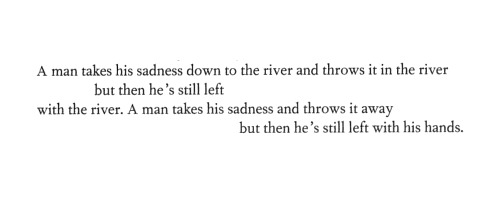Photo

“I hear and I forget. I see and I remember. I do and I understand.” – Confucius
52K notes
·
View notes
Text
How to eat less when you're with your family/ friends without worrying them
Eat slowly, really slowly. It takes 20 minutes to your stomach to realize it is full.
Cut your food into tiny pieces
Eat one by one
Chew at least 12 times
Talk, talk talk. More you talk, less you eat.
Ask questions about anything. You must wait the answer before you continue to eat.
Drink a lot of water before the lunch. Water makes your stomach full.
Drink a glass of water between two bites.
You can also put the food in your mouth, and spit it out in a tissue. You will later put it in the trash.
You must have all under control. Think about your goals.
Good luck 🦋
986 notes
·
View notes
Text
Dark Academia Books for Students of Politics and International Relations:
I mean, heck, I am no expert but my need to see this niche ass post is a lot so here goes.
The Prince: Machiavelli- do I NEED to explain this one. Its a seminal text in politics and political philosophy and when you listen to the ideas described in it they can sound a little crazy but once you read it you realise they are still crazy but grounded in something very real. Also its short as heck and an easy read.
Politics among Nations: The Struggle for Power and Peace- Hans J Morgenthau. I had to pick this one up for my coursework last semester and I thought it would be a snooze fest but no. I was drawn in and I haven’t finished it since but I do plan to get back to it at my leisure.
The End of History and the Last Man: Francis Fukuyama- YES, I fundamentally disagree with Fukuyama on so many points. YES, it is still one of my favourite books of all time. it is a very riveting discussion of political philosophy, history and international relations. If you are interested in any of those topics, pick it up. You won’t regret it.
How Democracy Ends: David Runciman- captivatingly written, great arguments, and a very unique voice. Super relevant in today’s international political atmosphere and if you are interested in studying the rise of right wing authoritarian governments across the globe, this is a great place to start.
Thomas Hobbes: Leviathan- another one that I just feel like i don’t need to explain. Again haven’t read it fully yet, but its quite chill inducing and the basis for most of the contemporary discussion on state, liberalism, authoritarianism, rights and so forth.
These were just my recommendations, and I by no means claim that they cover the entire gamut of the field. In fact, I would consider myself a noob still where texts relating to politics or IR are concerned, so feel free to give your recommendations and opinions as well!
9K notes
·
View notes
Text
How to learn a language when you don’t know where to start:
General Plan:
Weeks 1 and 2: Purpose:
Learn the fundamentals sentence construction
Learn how to spell and count
Start building a phrase stockpile with basic greetings
The Alphabet
Numbers 1 - 100
Subject Pronouns
Common Greetings
Conjugate the Two Most Important Verbs: to be and to have
Basic Definite and Indefinite Articles
Weeks 3 and 4: Purpose:
Learn essential vocabulary for the day-to-day
Start conjugating regular verbs
Days of the Week and Months of the Year
How to tell the time
How to talk about the weather
Family Vocabulary
Present Tense Conjugations Verbs
Weeks 5 and 6: Purpose:
Warm up with the last of the day-to-day vocabulary
Add more complex types of sentences to your grammar
Colours
House vocabulary
How to ask questions
Present Tense Conjugations Verbs
Forming negatives
Weeks 7 and 8: Purpose:
Learn how to navigate basic situations in a region of your target language country
Finish memorising regular conjugation rules
Food Vocabulary and Ordering at Restaurants
Money and Shopping Phrases
Present Tense Conjugations Verbs
Weeks 9 and 10: Purpose:
Start constructing descriptive and more complex sentences
Adjectives
Reflective verbs
Places vocabulary
Weeks 11 and 12: Purpose:
Add more complex descriptions to your sentences with adverbs
Wrap up vocabulary essentials
Adverbs
Parts of the body and medical vocabulary
Tips for Learning a Foreign Language:
Learning Vocabulary:
What vocabulary should I be learning?
There are hundreds of thousands of words in every language, and the large majority of them won’t be immediately relevant to you when you’re starting out.Typically, the most frequent 3000 words make up 90% of the language that a native speaker uses on any given day. Instead try to learn the most useful words in a language, and then expand outwards from there according to your needs and interests.
Choose the words you want/need to learn.
Relate them to what you already know.
Review them until they’ve reached your long-term memory.
Record them so learning is never lost.
Use them in meaningful human conversation and communication.
How should I record the vocabulary?
Learners need to see and/or hear a new word of phrase 6 to 17 times before they really know a piece of vocabulary.
Keep a careful record of new vocabulary.
Record the vocabulary in a way that is helpful to you and will ensure that you will practice the vocabulary, e.g. flashcards.
Vocabulary should be organised so that words are easier to find, e.g. alphabetically or according to topic.
Ideally when noting vocabulary you should write down not only the meaning, but the grammatical class, and example in a sentence, and where needed information about structure.
How should I practice using the vocabulary?
Look, Say, Cover, Write and Check - Use this method for learning and remembering vocabulary. This method is really good for learning spellings.
Make flashcards. Write the vocabulary on the front with the definition and examples on the back.
Draw mind maps or make visual representations of the new vocabulary groups.
Stick labels or post it notes on corresponding objects, e.g when learning kitchen vocabulary you could label items in your house.
How often should I be practising vocabulary?
A valuable technique is ‘the principle of expanding rehearsal’. This means reviewing vocabulary shortly after first learning them then at increasingly longer intervals.
Ideally, words should be reviewed:
5-10 minutes later
24 hours later
One week later
1-2 months later
6 months later
Knowing a vocabulary item well enough to use it productively means knowing:
Its written and spoken forms (spelling and pronunciation).
Its grammatical category and other grammatical information
Related words and word families, e.g. adjective, adverb, verb, noun.
Common collocations (Words that often come before or after it).
Receptive Skills: Listening and Reading
Reading is probably one of the most effective ways of building vocabulary knowledge.
Listening is also important because it occupies a big chunk of the time we spend communicating.
Tips for reading in a foreign language:
Start basic and small. Children’s books are great practice for beginners. Don’t try to dive into a novel or newspaper too early, since it can be discouraging and time consuming if you have to look up every other word.
Read things you’ve already read in your native language. The fact that you at least know the gist of the story will help you to pick up context clues, learn new vocabulary and grammatical constructions.
Read books with their accompanying audio books. Reading a book while listening to the accompanying audio will improve your “ear training”. It will also help you to learn the pronunciation of words.
Tips for listening in a foreign language:
Watch films in your target language.
Read a book while also listening along to the audio book version.
Listen to the radio in your target language.
Watch videos online in your target language.
Activities to do to show that you’ve understood what you’ve been listening to:
Try drawing a picture of what was said.
Ask yourself some questions about it and try to answer them.
Provide a summary of what was said.
Suggest what might come next in the “story.”
Translate what was said into another language.
“Talk back” to the speaker to engage in imaginary conversation.
Productive Skills: Speaking and Writing
Tips for speaking in a foreign language:
If you can, try to speak the language every day either out loud to yourself or chat to another native speaker whether it is a colleague, a friend, a tutor or a language exchange partner.
Write a list of topics and think about what you could say about each one. First you could write out your thoughts and then read them out loud. Look up the words you don’t know. You could also come up with questions at the end to ask someone else.
A really good way to improve your own speaking is to listen to how native speakers talk and imitate their accent, their rhythm of speech and tone of voice. Watch how their lips move and pay attention to the stressed sounds. You could watch interviews on YouTube or online news websites and pause every so often to copy what you have just heard. You could even sing along to songs sung in the target language.
Walk around the house and describe what you say. Say what you like or dislike about the room or the furniture or the decor. Talk about what you want to change.This gets you to practise every day vocabulary.
Tips for writing in a foreign language:
Practice writing in your target language. Keep it simple to start with. Beginner vocabulary and grammar concepts are generally very descriptive and concrete.
Practice writing by hand. Here are some things you can write out by hand:
Diary entries
Shopping lists
Reminders
What could I write about?
Write about your day, an interesting event, how you’re feeling, or what you’re thinking.
Make up a conversation between two people.
Write a letter to a friend, yourself, or a celebrity. You don’t need to send it; just writing it will be helpful.
Translate a text you’ve written in your native language into your foreign language.
Write a review or a book you’ve recently read or a film you’ve recently watched.
Write Facebook statuses, Tweets or Tumblr posts (whether you post them or not will be up to you).
Write a short story or poem.
Writing is one of the hardest things to do well as a non-native speaker of a language, because there’s no room to hide.
There are lots of ways to improve your writing ability, but they can be essentially boiled down to three key components:
Read a lot
Write a lot
Get your writing corrected
28K notes
·
View notes
Photo

Tomas Transtromer, from"Streets in Shanghai“ Bright Scythe
26K notes
·
View notes
Text
day 2
breakfast: porridge w banana, jasmine green tea (217kcal)
lunch: strawberries (131kcal)
dinner: carrot and butternut soup (204kcal)
snacks: hot chocolate (66kcal)
29/3/20 total - 618kcal
total water - 0l
i really didn’t drink any water today - it’s been really cold in my house so i didnt have the will to bring myself to drink cold water. i’ll try to do better tomorrow
49 notes
·
View notes
Text




moodboard: If We Were Villains as a Penguin Classics
652 notes
·
View notes
Text



Details: Ugolino and His Sons (Jean-Baptiste Carpeaux, 1827–1875).
7K notes
·
View notes
Text

A Levels is a lot different than GCSEs and here are some tips from a recent graduate.
It needs a lot more revision.
The jump from GCSEs/O Levels is enormous.Even though you go from having 8/9 subjects to ¾, much more studying is required. There’s a lot more to cover and all the topics are more elaborated. Overall, everything is just more difficult. Knowing this ahead of time can really be beneficial. Don’t think studying a week before midterms or exams will be a good idea because it won’t be. Your best bet would be to study as you go along.
Do not skip classes unless absolutely necessary.
The second mistake was skipping classes. So the first time I ditched, I told myself it would only happen again if it was an emergency, but alas, not the case. After my first time ditching, I almost stopped attending Economics classes completely because I thought I could study on my own, because I didn’t like my teacher. I regretted this when we had our mock, where the questions that were given to us had already been gone through in class.
Don’t waste your free periods.
I had a lot of free periods, and in all of them, I’d chat with friends, walk around the school, do nothing of sustenance, basically. These are ideal for studying or revising because you’re technically already in the right mindset seeing as you’re in school. Also, if you get enough done at school, you’ll end up having to do a lot less at home! I’m not saying do this every single time, but just realize that there’s more to free periods than social gatherings.
Pick subjects you enjoy.
Every subject is going to be difficult in it’s own way, and you’re going to most likely get fed up of everything. By picking something you enjoy, you may be able to deal with it a lot better and spend more time working on it. I spent the most time in AS on Economics because I loved it and it was so interesting to me, and much less time on Psychology just because it didn’t give me the same excitement. This was blatantly obvious when I got my AS results.
Your friend group will change,
I thought I’d be friends with the same people all throughout it. I was wrong. Over just two years, I lost a lot of people I considered to be close friends, but I also made so many new friendships. Friend groups change and it doesn’t have to be due to drama or whatever, it kind of happens naturally. Don’t be alarmed if this happens, because you’ll meet so many new people over the course of your A Levels.
Ask questions.
Don’t be afraid to raise your hand and clear your concepts if you’re confused. That’s literally what your teacher is there for! If you don’t want to ask in front of your class, ask in their office hours! It’s better to have accurate information than flipping through different books a week before the exam trying to make sense of it.
Join extracurricular activities and clubs
A Levels isn’t going to be fun if all you do is stay locked up studying. To make new friends, meet new people, just have a better time, you can join a club or an activity or something sports related! I joined like three clubs in AS and ran my own in A2, and let me tell you, it was amazing. I met people I would’ve never been friends with if it weren’t for the clubs. Yes grades are important, but some universities may prefer it if you seem like an all rounder.
If anyone has any other tips on starting A Levels please mention them!
58 notes
·
View notes
Photo


on earth we’re briefly gorgeous, ocean vuong / boot theory, richard siken
9K notes
·
View notes
Text
my unread books will never forgive me for this quarantine if I decide to still not read them
66K notes
·
View notes
Text

sorry my bedroom is not really da themed lol. but here it is it’s chaotic but I love it
279 notes
·
View notes
Text
K-pop diets/k-popowe diety
Every single one of this diets is kind of boring, but restrictive, definitely effective and borderline ana.
~~~~~~~~~~~~
Jak coś mogę przetłumaczyć ale obrazki wydają mi się wystarczjąco czytelne. Wszystkie te diety są dość monotonne i restrykcyjne, na pewno skuteczne i graniczące z Aną.

Breakfast - 72-94kcal Lunch - 2x190kcal Dinner - 90-110kcal
in total - 542-584kcal

Breakfast - 140+72/94kcal Lunch - 130+60kcal Dinner - 190+30/60+90kcal
in total - 712-764kcal

OMAD - 2x190+200+2/3x74kcal
in total - 728-802

Breakfast - 190kcal Lunch - 3x74+90kcal Dinner - 3x 40kcal
in total - 622kcal

Breakfast - 25+90kcal Lunch - 119+32kcal Dinner - 25+32kcal
in total - 318kcal

Breakfast - 200+190+90kcal Lunch - 119+15kcal Dinner - 2x190kcal
in total - 994kcal Measurements I used:
1 sweet potato - 200g - 190kcal
1 apple - 130-180g - 72-94kcal
1 big egg - 74kcal
protein shake - 90-110kcal
1 slice of toast - 90kcal
1 whole lettuce - 210-400g - 25-65kcal
1 slice of kimbap/sushi - 40kcal
yogurt - 200g - 140kcal
rice - 100g - 130kcal
pumpkin porridge - 100g - 29kcal
chicken breast- 200g - 200kcal
1 cucumber - 180g - 25kcal
low fat 0,5% milk - 1 glass - 90kcal
½ cabbage - 200g - 32kcal
brown rice - 100g - 119kcal
vegetable salad - 100g - 15kcal
Miary jakie zastosowałam:
1 słodki ziemniak/batat- 200g - 190kcal
1 jabłko - 130-180g - 72-94kcal
1 duże jajko - 74kcal
shake proteinowy - 90-110kcal
1 kromka chleba tostowego - 90kcal
1 cała sałata - 210-400g - 25-65kcal
1 kawałek kimbapa/sushi - 40kcal
jogurt - 200g - 140kcal
ryż - 100g - 130kcal
krem z dyni - 100g - 29kcal
pierś z kurczaka - 200g - 200kcal
1 ogórek - 180g - 25kcal
odtłuszczone 0,5% mleko - 1 szklanka - 90kcal
½ kapusty pekińskiej - 200g - 32kcal
ryż brązowy - 100g - 119kcal
sałatka warzywna - 100g - 15kcal
Stay skinny and fabulos!~ ♡
Trzymajcie się chudo i wspaniale!~ ♡

2K notes
·
View notes
Text
february goals
i tried this in january but only ended up achieving like 1/3 of the things that i wanted to, so im going to be a bit more lax with february
sleep🌌:
weekdays:
aim to finish workout/stretch for 12 and get into bed as quick as possible
no going onto your phone after your workout other than for music
be in bed by 12:30 at the latest
wake up at 7:15, weigh yourself, and then do anything until 8
weekends:
stay up until 1:30 at the latest but aim for 1
be up by 11:15 at the latest unless you were up past 1:30 doing something other than being on your phone
exercise🏋🏻♀️:
weekdays:
do the silent workout before bed every night but wednesday
if you start before 11:30 try and do the full circuit
if you start after 11:30 do half
if you have enough energy in the morning do light target area exercises (leg lifts for thigh, crunches for your stomach, etc)
walk your dog for at least 15 minutes after school
weekends:
do 15 minutes of yoga before bed, but not workout
walk your dog for at least 30 minutes
general:
if you have a metabolism day burn off any excess calories to 650 calories
every 50 calories burned is an extra 10 calories in your budget unless you went over
hydration💧:
weekdays:
drink your coffee in first period, 1/2 tbsp of hot chocolate powder, 1/2 pack sweet n low
finish one water bottle worth of water before the end of lunch
finish at least 1 water bottle worth of water in third and fourth period
drink 1 glass of water after walking your dog
drink one water bottle worth of water before dinner
drink 1 glass of water at dinner, try to take a sip between each bite
drink one water bottle worth of water before your workout
drink one water bottle worth of water while working out, finish it before you go to bed
weekends:
drink a glass of water as soon as you go downstairs
drink a glass of water with breakfast
fill up your water bottle on your way upstairs and finish it before you go back down
drink a glass of water with lunch
fill up your water bottle on your way upstairs and try to finish it at least twice
drink a glass of water with dinner, try to take a sip between each bite
drink a glass of water before going to bed
nutrition🥗:
weekdays:
eat a small glass container worth of fruit and your coffee in first period
eat you meal prepped lunch, must be below 175 cals
dont take and food or drink offers from your friends
between when you get home and dinner have a bowl of fruit or veggies with anything else, must be below 150 cals
try to make your own dinner, must be below 250 cals
if you have to eat your parents dinner and its super calorie dense count it as a metabolism day and burn the excess off
weekends:
have a bowl of fruit or veggies for breakfast, if you dont have any eat low cal cereal, must be below 150
dont eat again until 3, have a small lunch, must be below 175
if you arent going out for dinner and can make your own, keep it below 200
if you go out for dinner or cant make your own count it as metabolism day and burn off the excess
if you get hungry any time throughout the day you can have a snack, must be below 125 cals
self care🌺:
shower every sunday, wednesday and friday at 5pm
put in your hair oil and curl or straighten it after it dries
paint your nails every saturday
shave your legs on sundays, under your arms every shower, and anywhere else on fridays
moisturize your legs, face, and shoulders/neck after every shower
if your room isnt tidy put on a 45 minute playlist and clean until its over
distractions:
if you feel like youre going to binge, drink a glass of water and do one thing. once youre done reevaluate and if youre still hungry then eat some fruits or veggies and do another thing
clean your room
paint your nails
watch an episode of lucifer
do your hair
do your makeup
look up lunch ideas on pinterest
plan your outfits for the week
write some of your story
do full body measurements
look at thinspo
watch to the bone
walk your dog
take buzzfeed quizzes
as always these are only for me so be cautious if you try them, good luck and stay safe💕
~sam
796 notes
·
View notes





